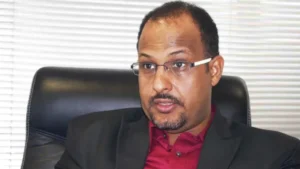The UK government is intensifying its efforts to bridge the digital divide with a major investment aimed at improving internet speeds in remote areas. This initiative is part of a broader strategy to achieve full gigabit broadband coverage across the UK by 2030.
Elizabeth Anderson, CEO of the Digital Poverty Alliance, welcomed the government’s renewed commitment. “Millions across the country still struggle to access basic online services due to poor connectivity, especially in rural regions, so it’s excellent to see the government’s renewed push to roll out improved broadband,” Anderson stated. She emphasized that “connectivity must be viewed as a core part of modern life in the digital age, on a par with essential utilities such as energy,” and highlighted the need for continued investment to prevent digital exclusion.

Anderson also pointed out that as more essential services transition online, reliable connectivity becomes crucial for everyday tasks like remote education and online healthcare. However, she stressed the importance of ensuring that high-speed internet remains affordable, especially amid the ongoing cost-of-living crisis.
The government’s initiative focuses on upgrading outdated infrastructure in rural areas, which has historically impeded residents and businesses from accessing high-speed internet. Areas such as the South Wales Valleys, Exmoor National Park, and the Forest of Bowland are set to benefit significantly from this project, which aims to bring these regions up to speed with more urbanized areas.
Jürgen Hatheier, CTO for EMEA and APAC at Ciena, also commented on the initiative, stating, “This effort will go a long way to help millions more Britons access affordable broadband, which has become a crucial utility.” He stressed the importance of providing rural communities with high-quality broadband infrastructure and advocated for the use of fiber broadband supported by intelligent software. According to Hatheier, this technology is increasingly affordable and accessible.
Hatheier further noted that closing the digital divide is a shared responsibility between the government and the telecom industry. He praised the industry’s efforts to enhance network efficiency and accessibility. “The combination of government funding and industry collaboration means that higher bandwidth to run the types of applications we now need for work and school will be available to more people in a more affordable way,” he concluded.
This substantial broadband upgrade represents a significant step towards reducing digital inequality and ensuring that all parts of the UK can benefit from the advantages of high-speed internet access.




